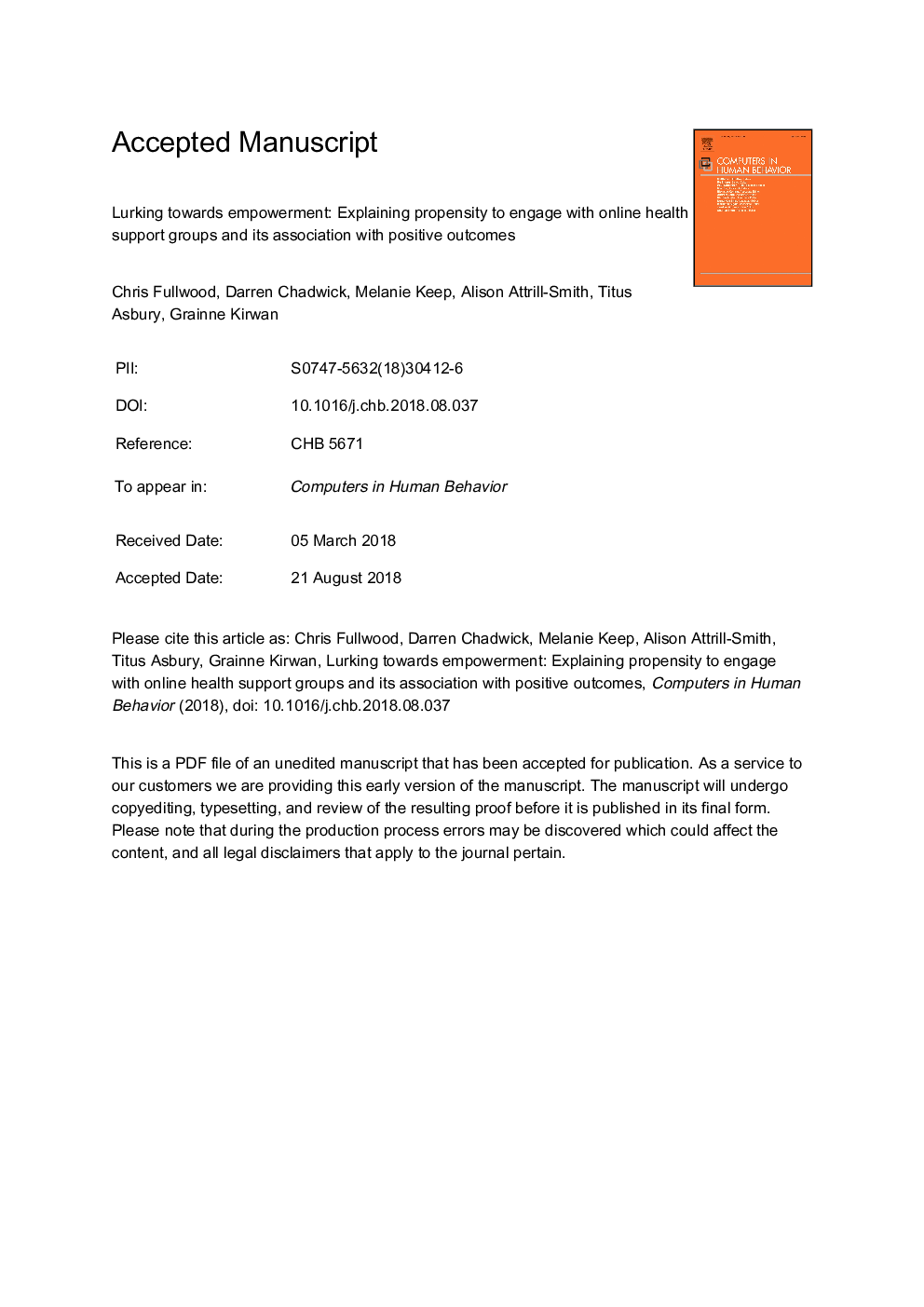| Article ID | Journal | Published Year | Pages | File Type |
|---|---|---|---|---|
| 10132552 | Computers in Human Behavior | 2019 | 42 Pages |
Abstract
Online health support groups (OHSGs) offer opportunities for people with various health conditions to gain support and associated physical and mental health benefits, however evidence suggests that those who choose to lurk in OHSGs may be less likely to accrue benefits (e.g. empowering outcomes) than those who actively contribute. Most research to date has focused on comparing the outcomes of OSHG engagement for lurkers and participators, yet there has been little research which has considered how the different reasons for lurking might be associated with levels of participation and empowering processes. In this investigation we used a survey to gather data from 237 participants to develop a new scale to measure factors influencing the Propensity for Online Community Contribution (POCCS), and to explore the relationship between these factors and OHSG engagement behaviour and empowering processes accrued from OHSG use. The POCCS comprised nine factors, 1) poor sense of community; 2) struggles with self-expression; 3) inhibited disclosure and privacy; 4) negative online interactions; 5) ease of access and use; 6) health preventing contribution; 7) delayed and selective contribution; 8) goals met without contribution; and 9) lack of time. Five of these factors (1, 3, 6, 7, and 8) significantly predicted OHSG contribution and positive experiences in the form of empowering processes. Findings advocate a more nuanced approach to OHSG engagement, rather than a simple lurking/engaging dichotomy, and may enhance understanding of the relationship between OHSG use and perceived benefits.
Keywords
Related Topics
Physical Sciences and Engineering
Computer Science
Computer Science Applications
Authors
Chris Fullwood, Darren Chadwick, Melanie Keep, Alison Attrill-Smith, Titus Asbury, Grainne Kirwan,
